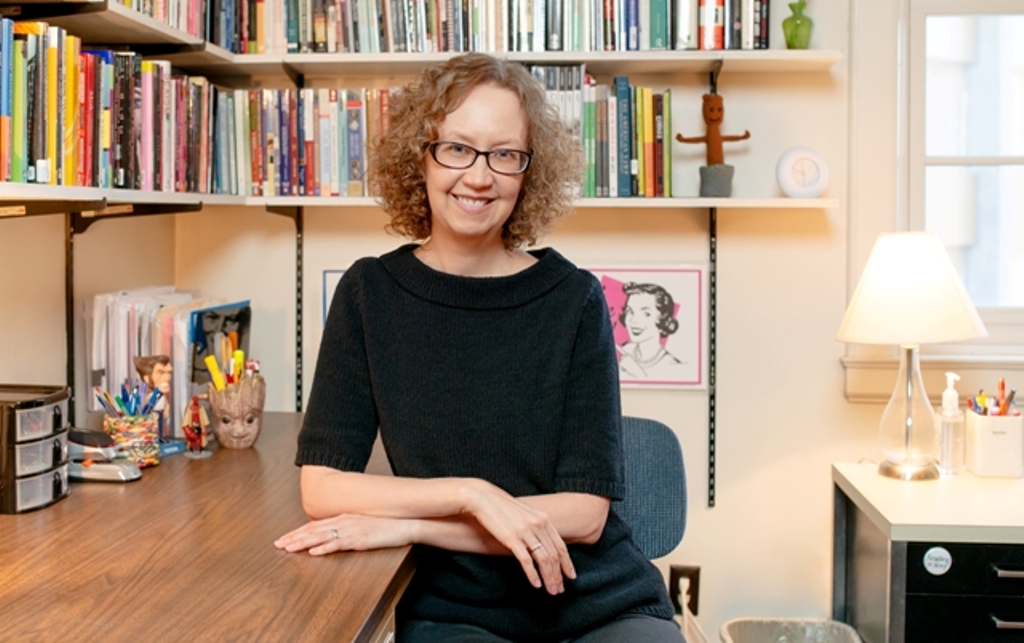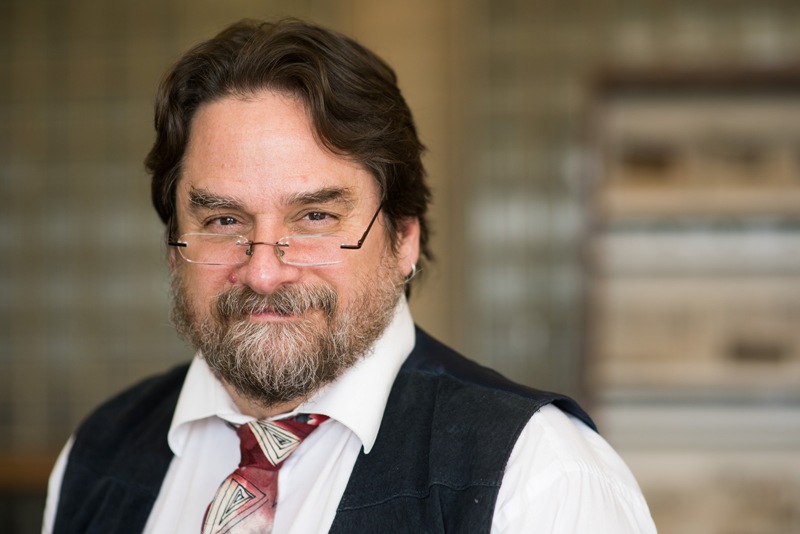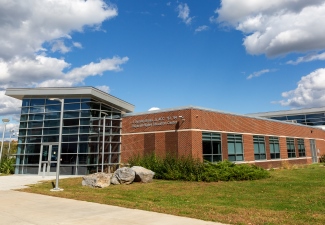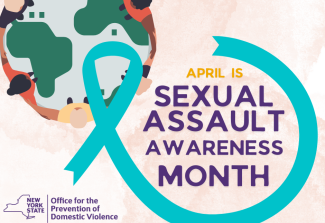Teaching Excellence, Technology Enhanced Learning Partner to Enhance Online Experiences

The Center for Teaching Excellence and the Technology Enhanced Learning office at SUNY Plattsburgh teamed up throughout the summer to support faculty as they prepared for remote and hybrid teaching for the fall semester.
 Dr. John Locke, coordinator of the learning office, and Dr. Jessamyn Neuhaus, professor
of history and interim director of the center, began their collaboration when the
college moved to remote delivery of classes last March. They began early, offering
workshops and Friday “Happy Hour” sessions via Zoom so faculty and staff could meet
at a social distance to share their experiences and spend some face time.
Dr. John Locke, coordinator of the learning office, and Dr. Jessamyn Neuhaus, professor
of history and interim director of the center, began their collaboration when the
college moved to remote delivery of classes last March. They began early, offering
workshops and Friday “Happy Hour” sessions via Zoom so faculty and staff could meet
at a social distance to share their experiences and spend some face time.
But the collaboration didn’t end when the semester did.
“We prepared for the summer by hosting a few sessions by which we determined what faculty felt they were lacking when asked in March to shift so suddenly to online delivery,” Locke said. “From that information, we were able to develop a list of appropriate workshops and schedule them at various times over the summer months.”
Impressed with Time, Effort
“I’ve been endlessly impressed with how much time and effort so many instructors were willing to spend this summer in order to prepare for teaching hybrid or fully online classes,” Neuhaus said. “The biggest concern I’ve heard from faculty could be broadly described as how to continue to provide students with transformative educational opportunities this semester, given the uncertainties and constraints we’re all facing in the midst of a global pandemic. Questions about how we can best ensure academic equity, continue to build connections with students and utilize technology effectively are part of that.”
The two areas developed and co-presented workshops on various topics to address those concerns, they said.
“Our delivery has been well-received, and we’ve found that questions are equally divided between those who want to learn more about tech and those who would like to explore pedagogy — how to teach,” Locke said.
Topics included “Your Online Pedagogical Presence,” “Guidelines for Effective Teaching with Zoom,” and “Three Basic Building Blocks for Assessing Student Learning Online.”
Workshops ‘Well Attended’
“Our workshops were well attended and perhaps just as importantly, I think we’ve started to lead a shift in the campus culture toward a better understanding of the educational/professional development opportunities offered,” Neuhaus said.
Neuhaus said collaboration is vital to CTE programming.
“I’m happy to report that I think the CTE made great strides in this area over the summer, demonstrating how the center can be a community builder and campus connector,” she said.
For example, one of the best things that came out of many workshops was the way faculty shared ideas and insights with other faculty in different disciplines, Neuhaus said.
Increased Camaraderie
“I saw some notable breaking down of campus ‘silos’ and an increase in camaraderie and sharing teaching problems and possible solutions — what I call the Plattsburgh pedagogical community of practice.”
This summer’s Faculty Learning Community — an initiative created long before the pandemic — “brought together diverse faculty to simply talk about teaching,” Neuhaus said. “Similarly, the ‘Teaching Today’ roundtable discussions were well attended by a wide range of campus leaders and faculty.”
Neuhaus said the roundtables discussed a broad range of topics, including:
- Student food insecurity
- International students’ experiences at Plattsburgh
- Trauma-informed teaching
- Coaching tips for the classroom
- Creating effective online discussion forums
- How student activities and clubs shape students’ college experiences
Locke said that feedback received following the “Guidelines for Effective Teaching with Zoom” workshop resulted in his presenting “Classroom Management Using Zoom.”
Understanding Zoom ‘Priority’
“In these sessions, faculty are provided with an overview of the various tools available for teaching with Zoom and are given the opportunity to practice hosting a Zoom meeting,” Locke said. “And finally, to address the growing demand for information on how to edit original video content, we modified a face-to-face workshop titled ‘Adobe Premier: Strictly Editing’ for remote delivery.
“Understanding how to use Zoom as a replacement for the face-to-face classroom experience is also a high priority among faculty, and we’ve offered workshops in which we have explored both the practical, as well as the moral, implications of relying on video as an alternative,” Locke said.
Together, the work is directly contributing to building teaching efficacy and increasing student learning and academic success at SUNY Plattsburgh, Neuhaus said.
“I’m hopeful that the connections many people on campus started to make this summer will continue to offer support and encouragement during the challenging fall semester.”
News

SUNY Adirondack Students Benefit from New Dual Agreement with SUNY Plattsburgh Queensbury

SUNY Recognizes Two Plattsburgh Seniors for Excellence in Academics, Leadership
